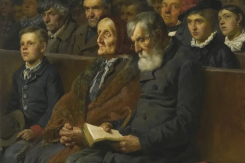Transcript of interview with Lord Nolan
The following interview with Lord Nolan, Chairman, Independent Review on Child Protection in the Catholic Church in England and Wales was broadcast yesterday on the BBC Radio Four Today Programme SARAH MONTAGUE: Presenter The pressure on Cardinal Cormac Murphy-O'Connor shows little signs of easing. Yesterday, this programme revealed how the head of the Catholic Church in England and Wales allowed a priest who'd admitted interfering with a teenage boy to continue working. It was the latest in a series of allegations about the church's handling of abuse cases. In his defence the Cardinal has pointed out that he set up an independent inquiry into the issue and that he's followed its recommendations to the letter. Well the man who chaired that inquiry is Lord Nolan, he's in our radio car. Good morning. LORD NOLAN: Good morning to you. SARAH MONTAGUE: Are you confident that your guidelines have both been implemented, and are working? LORD NOLAN: Yes, to both. The organisation concerned with implementing and supervising their implementing, is as you know the Catholic Organisation for the Protection of Children and Vulnerable Adults. Now that was set up in January of this year, and as far as I can make out, its director Eileen Shearer is very pleased indeed with the progress made to date. Certainly, our recommendations were at once adopted by all the bishops and all the heads of religious bodies, and I've been impressed and heartened by the reaction and the work done, since the report was made. SARAH MONTAGUE: There have been a number of problems though that have been thrown up recently, not least I suppose partly as a result of the fact that victims of abuse are often themselves vulnerable for some other reasons, and whether it's for that reason, or just .. for whatever the reason is, they're reluctant to act as a witness. So when these cases come up they don't actually want to pursue them, and that is of course is always going to provide some problems. But how can you how can you get round that? LORD NOLAN: You.. there's really no easy way, is there, of proving a negative. If an allegation is made but not pursued, so that it never comes into court, all that the.. all that we recommended to be done, and all that the church is doing, is.. first of all, if there's real ground for concern against a particular teacher or priest, at once to remove him from contact with children while the matter is investigated. And when the investigation has been carried out, then assuming that there is, as I say, some ground for genuine concern, then you carry out a risk assessment as to whether the individual should be allowed back into contact with children, and if so under what conditions. SARAH MONTAGUE: We have a problem.. LORD NOLAN: And that's absolutely vital. SARAH MONTAGUE: We have a.. the case this week that came up, I mean, the Cardinal Cormac Murphy- O,Connor acknowledged exactly that point, saying that where allegations, even where there was no prosecution, where allegations are regarded as well founded, action would be taken to remove the priest from active ministry. But we heard of a case this week where even though the priest involved admitted it, he was.. the case wasn't pursued and he was allowed to continue, and he even stayed as a governor of a school. LORD NOLAN: Yes, you're.. I believe you're quite right. Two points. First we're saying that, in this letter to The Times, that somebody who had been guilty of abuse would at once be removed from association with children. The Cardinal was in fact going further than the Nolan guidelines. We didn't rule out the possibility of an offender being allowed back [word unclear] children, provided that there'd been a risk assessment, and that there was going to be a continuing risk assessment, and that the risk assessment indicated that it would be safe to let him work with children. And that, I understand, is exactly what happened in this case. SARAH MONTAGUE: So is there a limit to what can be done anyway, to protect children? LORD NOLAN: Yeah I'm afraid there is. We've done out best in our report. It was a report, as you know, of an independent committee, with a widely drawn body of people, most of them non- Catholic, but from much.. a range of experience in various aspects of the problem. And our aim has been to make the Catholic Church a model, an example of best protect.. best practice in the protection of children, which is what the Church should be, and I hope we're succeeding in that. SARAH MONTAGUE: Well let me put to you the comments of a Catholic, but a leading campaigner in child sex abuse cases. And she said most sex offenders would choose to be in a place where there is a lack of supervision and a lot of power. They chose to be in this profession. Do you think that is a problem that the Catholic Church has? LORD NOLAN: I think less so now. I think that one of the problems, that we've found certainly, was that each diocese was operating independently, each religious order was operating independently, and there was no national coordination of information, no national policy. That is why we recommended so strongly the creation of the National Unit, to work with individual diocese and religious communities, both in and outside the Catholic Church, and make the best use available of the Criminal Records Bureau for example, and pool information. The key.. I'm sure, from my past experience of other committees, is openness and accountability. And those are aims towards which the church is working, and which will I think be achieved by means of the National Unit and its regular reports which it will publish. SARAH MONTAGUE: Lord Nolan, thank you very much.


















